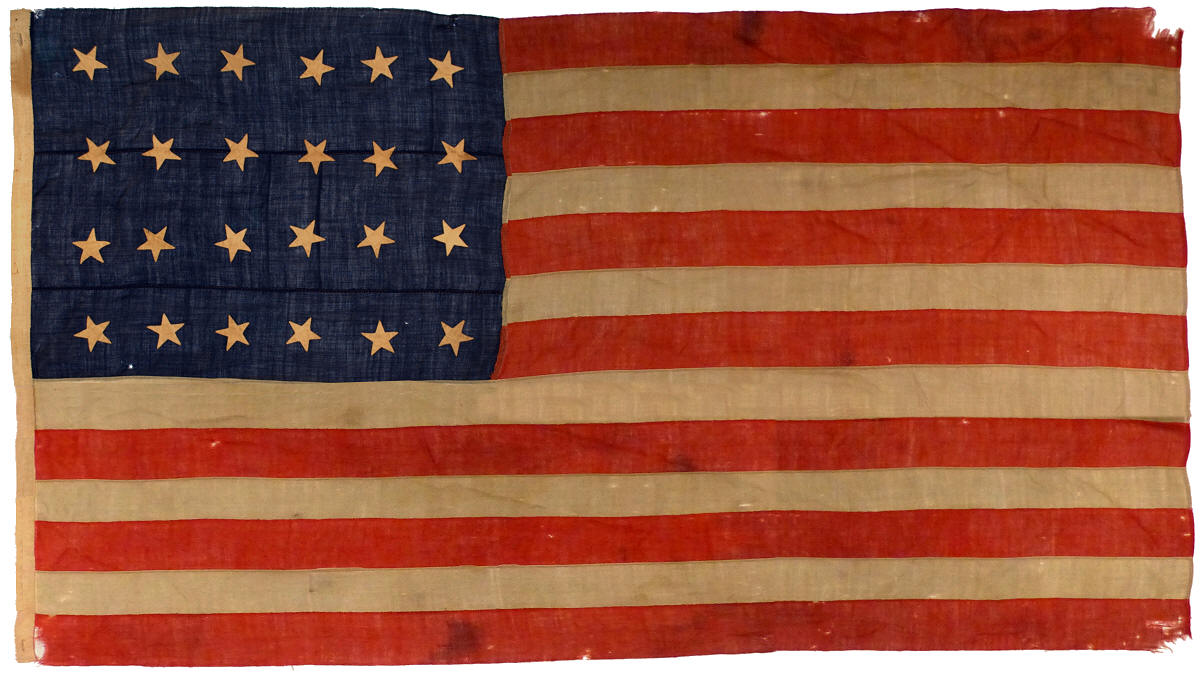|

Flags dating to the
first half of the 19th century are very scarce. These
pre-Civil War examples are seldom found, and despite
some early star counts from this era being official for
many years, collectors of flags may spend many years
searching for examples of flags with counts of 31 stars
or fewer to surface.
 |
Grace Rogers Cooper served as the Smithsonian
Institution's curator of textiles from 1948 to
1976, and is famous among flag collectors as the
author of Thirteen-Star Flags: Keys to
Identification, published in 1973. At the
time of the book's publication, Ms. Cooper noted
that "There were no official twenty-two star
flags since Alabama and Maine entered the Union
the same month. Although actual flags of
twenty-one- and twenty-three-stars are unknown
to this writer and thus have not been examined,
their component parts and method of construction
would be comparable to either the twenty-star
flag or the twenty-four-star flag or both."
Ms. Cooper did examine a single twenty-four-star
example from the Smithsonian's Division of
Military History for her book, but that flag was
a military eagle-type flag with 24 stars and an
eagle painted on the canton, rather than a
traditional pieced-and-sewn Stars and Stripes
flag. However, just two years after
Thirteen-Star Flags was published, Ms.
Cooper examined this 24-star flag from the
collection of Richard Stifel. The signed written
report indicates the date of the flag as
"probably 1822-1836; nothing about the component
parts that would prevent this flag from having
been made in the period of 24-star flags."
The fabric of the flag is single ply warp
worsted wool bunting. The cotton stars are
appliquéd to each side of the flag. The
heading, or hoist, of the flag is made of coarse
linen, and the flag is sewn with 2-ply linen
thread, except for the stars, which are sewn
with 3-ply cotton thread. The written
report is signed by Ms. Cooper on January 17,
1975. |
|

